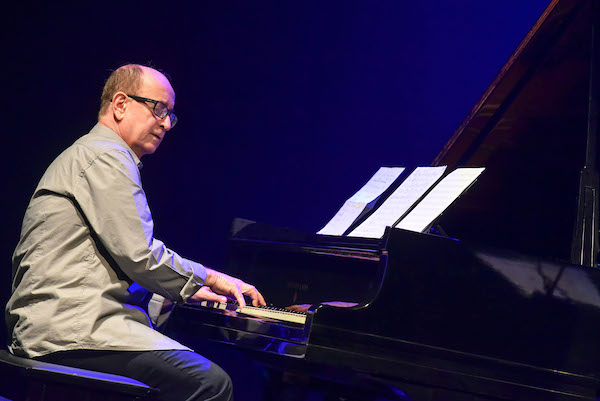Jan 13, 2026 2:09 PM
More Trump-Kennedy Center Cancellations
The fallout from the renaming of the John F. Kennedy Center for the Performing Arts to include President Donald…

Since they first met, pianist Antonio Adolfo has gone on to be one of the foremost bandleaders in Brazilian jazz, and Milton Nascimento became one of Brazil’s most essential and influential singers.
(Photo: Mirna Modolo)Two young musicians in Rio De Janeiro became friends and, briefly, collaborators back in 1967.
Antonio Adolfo, a 20-year-old pianist and Rio native, was leading a pioneering samba-jazz group called The 3-D Trio. Milton Nascimento, a largely unknown 25-year-old guitarist and singer who hailed from the small city of Tres Pontas in mountainous Minas Gerais, was in town to perform at the International Song Festival.
Since then, Adolfo has gone on to be one of the foremost bandleaders in Brazilian jazz, and Nascimento, of course, became one of Brazil’s most essential and influential singers. But in 1967, they both were trying to make a name for themselves.
“Milton is a genius,” Adolfo recently declared over the phone from Rio while discussing his latest release, BruMa (Mist): Celebrating Milton Nascimento.
The pianist fondly remembers hanging out at the home of songwriter brothers Marcos and Paulo Sérgio Valle with the soon-to-be star and others who became major figures in Brazilian pop, a group that included Roberto Menescal, Toninho Horta and Arthur Verocai.
“Marcos wrote a song called ‘Viola Enluarada’ that we recorded together—Marcos and Milton, backed by my 3-D Trio, with strings arranged by Dori Caymmi. The song became a hit,” Adolfo said. “Then we did a show at the Teatro Santa Rosa for two months that featured some of Milton’s songs like—‘Outubro,’ ‘Vera Cruz,’ ‘Travessia’ and ‘Tres Pontas.’ That was the only time I performed with Milton.”
Nascimento went on to claim 2nd prize in the song festival, launching his career in Brazil, and “Travessia”—with an English lyric by Gene Lees—eventually went on to become his first international hit.
Adolfo features “Outubro” and “Tres Pontas” on BruMa, as well as seven other Nascimento compositions, including “Nada Será Como Antes,” “Canção Do Sal” and “Cais.”
“I always thought about recording his songs,” Adolfo said. “It’s the combination of Milton’s voice, his arrangements, his playing, and his harmonic and rhythmic concepts. In the ’60s and ’70s, he brought some odd meters and modal ideas that he got from Miles [Davis] and Herbie [Hancock] and Wayne [Shorter]. Besides the modal thing, he did new types of [chordal] voicings on his guitar. It was all very modern, very original; nobody writes like him. That’s why jazz musicians like Wayne and Herbie love him: He is so jazzy.”

Belá Fleck during an interview with Fredrika Whitfield on CNN.
Jan 13, 2026 2:09 PM
The fallout from the renaming of the John F. Kennedy Center for the Performing Arts to include President Donald…

Peplowski first came to prominence in legacy swing bands, including the final iteration of the Benny Goodman Orchestra, before beginning a solo career in the late 1980s.
Feb 3, 2026 12:10 AM
Ken Peplowski, a clarinetist and tenor saxophonist who straddled the worlds of traditional and modern jazz, died Feb. 2…

The success of Oregon’s first album, 1971’s Music Of Another Present Era, allowed Towner to establish a solo career.
Jan 19, 2026 5:02 PM
Ralph Towner, a guitarist and composer who blended multiple genres, including jazz — and throughout them all remained…

Rico’s Anti-Microbial Instrument Swab
Jan 19, 2026 2:48 PM
With this year’s NAMM Show right around the corner, we can look forward to plenty of new and innovative instruments…

Richie Beirach was particularly renowned for his approach to chromatic harmony, which he used to improvise reharmonizations of originals and standards.
Jan 27, 2026 11:19 AM
Richie Beirach, a pianist and composer who channeled a knowledge of modern classical music into his jazz practice,…